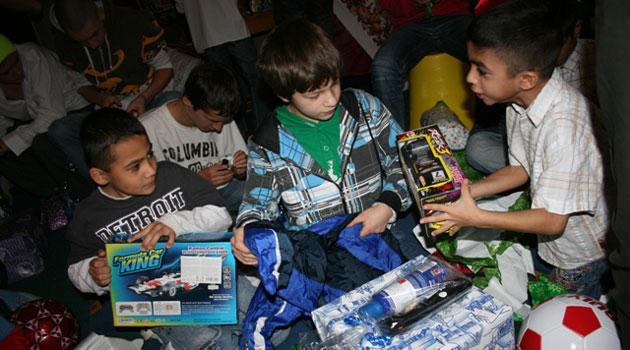Czech Republic: Proportion of Roma in children's homes increasing

The proportion of Romani boys and girls in children’s homes for children under three years of age has risen in recent years. While in 2010 one-fifth of the population of such nursery institutions was comprised of Romani children, at the end of last year one-third of the children in such institutions were Romani.
While the absolute number of Romani children in such institutions has fallen, it has not fallen at the same rate as the overall number of children in such facilities. It is also difficult to find adoptive families for Romani children.
Those are some findings from the Czech Government’s report on the state of the Romani minority for 2014. At the end of last year there were 1 213 young children in institutions, 389 of them Romani.
"Adoption or foster care is frequently the only chance for these children to exit the institutional care system. Romani children have significantly lower chances of adoption or of being taken into foster care because of the prejudices of prospective adoptive parents, the prejudices of those around them, and also some professionals who facilitate adoptions," the report says.
According to the report, the authorities say such children’s ethnicity is the main reason adoptive families cannot be found for them in the Czech Republic. The country has long reaped criticism from domestic experts and international institutions over the high number of children living in institutions.
The Czech Republic is the last country in Europe where it is possible to send children three years old and younger to a children’s home. In Slovakia such children cannot be institutionalized until the age of six, while in Austria and Germany they must be three.
Studies have proven that residing in institutions has unfavorable impacts on children. At the end of 2010 there was a total of 1 963 boys and girls in nursery institutions in the Czech Republic.
Of those, 403 were Romani, or one-fifth. The number of such young children in children’s homes has gradually been falling.
At the end of last year there were 1 213 such children in such facilities. Of those, 389 were Romani, or 32 %.
"That is 14 times more than the representation of Romani people in Czech society," the authors of the report pointed out. They clarified that data on the numbers of Romani children between age three and 18 in children’s homes are not collected, but experts estimate they could represent between 30 and 60 % of the population of such facilities.
According to the authors of the report, it is necessary in future to address the causes as to why there is such a high number of Romani children placed into institutional care and to promote reforms to the child welfare protection system with the aim of reducing the number not just of Romani children, but of all children placed in institutional care. "Alternative solutions for difficult life situations are limited by the lack of existence of a concept for social housing and insufficient capacity for crisis housing," the report says.
For many children their only chance is to be adopted abroad. Shortly after taking office, Czech Labor and Social Affairs Minister Michaela Marksová (Czech Social Democratic Party – ČSSD) sadly noted that Romani boys and girls seem to be an "export article" for the Czech Republic.
"Our usual client is a three to four-year-old Romani boy. These children have waited three to four years here to find an appropriate form of substitute family care. Neither adoptive nor foster parents have been found for them. That is alarming in and of itself," said the director of the Office for the International Legal Protection of Children, Zdeněk Kapitán.
That office facilitates the adoption of children who are Czech citizens from abroad and the adoption of children from abroad by Czech residents. According to Kapitán, the Brno-based institution has had only the best experiences with prospective adoptive parents from abroad.
Such parents are said to be genuinely interested in the children and well-prepared to care for them. "For example, we do not encounter racial prejudices among them at all. This country, on the other hand, is constantly coming to terms with such prejudice," he pointed out.
Last year new families abroad were found for 54 boys and girls from the Czech Republic. Of those, 44 were not yet five years old.
While ethnic origin is not officially recorded for such adoptees, according to the Government’s report on the state of the minority, most of them were Romani children. According to the authors of the Government document, this high propotion of Romani children adopted abroad represents a long-term problem.
For these boys and girls, adoption abroad means an enormous burden – they are brought into a different environment with a different culture and language. In some cases ties with siblings who remain in the Czech Republic are broken.
"It is necessary to review this practice and whether the procedures applied during the process of facilitating these adoptions are not discriminatory," the report states. According to the document, it it also necessary to conduct education and training among the people working for the authorities that arrange adoptions, as being adopted by families living abroad should represent the very last resort for these children.